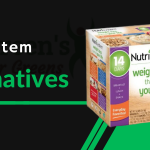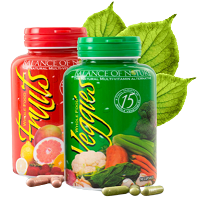Avocado is often linked to guacamole. It offers more than a creamy addition to chips and salsa. This fruit is packed with vitamins, minerals, and beneficial herbs that provide advantages for our bodies. By including avocados in your meals, you can experience the benefits of this rich superfood. Now let’s explore some of the perks of avocado.
Abundant in Nutrients
Avocados are rich in vitamins and minerals.
Vitamins: A medium-sized avocado contains significant amounts of vitamins C, E, K, B6, and folate. These vitamins support our system, bone health, metabolism, and cell growth.
Minerals: Avocados are also a source of minerals like magnesium and potassium. These minerals play a role in muscle function, nerve function, heart health, and metabolic processes.
Antioxidants: Avocados contain antioxidants such as lutein, zeaxanthin, and beta-carotene. These antioxidants help protect our eyesight and reduce inflammation.
Healthy Fats: Although avocados have a high calorie content due to their fat content, fret not! The majority of these fats come from monounsaturated fats, which promote heart health and aid in absorption.
Fiber: Each avocado provides 7 grams of fiber that contributes to a feeling of fullness while supporting health.
The diverse nutritional composition of avocados makes them suitable for preferences.
Feel free to ask if you need any assistance!
So what exactly are avocados?

Avocados are loved for their creamy texture as well as their delicate flavor. They belong to the lauraceae family, which also includes cinnamon and laurel. Scientifically known as Persea americana, avocados come in different sizes, colors, and textures. They originate from climates. They become buttery when ripe, making them a highly sought-after ingredient in a wide range of dishes like dips and desserts.
12 Amazing health benefits of eating Avocados
Avocados are often underestimated as an ingredient in guacamole. They actually contain a multitude of nutrients and compounds that offer numerous advantages for our bodies. By incorporating avocados into your diet, you can support the health of your heart, eyes, gut, joints, and more. Let’s explore the twelve benefits of including avocados in your meals.
1. May help maintain heart health
Avocados contain beta-sitosterol, which helps maintain cholesterol levels by reducing the absorption of LDL cholesterol. When saturated fats are replaced with monounsaturated fats found in avocados, it can also aid in decreasing LDL levels while increasing HDL cholesterol. Potassium is beneficial for health as it helps relax blood vessels and lower blood pressure.
2. May contribute to maintaining eye health
Avocados contain lutein and zeaxanthin, two types of carotenoids that accumulate in the eye tissues and form macular pigment. This pigment acts as an antioxidant, protecting the eyes from light and free radicals. By reducing damage, lutein and zeaxanthin play a role in preventing age-related macular degeneration and vision loss. Moreover, avocados are rich in vitamin E and monounsaturated fats that aid in the absorption of carotenoids like beta-carotene and lutein from food sources. Beta-carotene is converted into vitamin A, which is essential for maintaining vision. Additionally, the omega-3 fatty acids present in avocados have inflammatory properties that promote overall eye health by reducing the risk of dry eyes.
3. Prevention of Osteoporosis
Avocados are a source of vitamin K, providing about 18% of the daily value in half a fruit. Vitamin K plays a role in promoting bones, although its importance often goes unnoticed. It assists in the production of osteocalcin, a protein that helps bind calcium to bone tissue, thereby enhancing bone strength and mineralization.
Moreover, avocados contain vitamin K, which aids in the absorption of calcium from food in the intestines. This ensures that more calcium is utilized for maintaining bone health than is excreted. Increased intake of vitamin K has been associated with bone mineral density and a reduced risk of fractures among older individuals who are prone to osteoporosis. Additionally, the potassium found in avocados may protect bones by reducing calcium loss through urine and supporting the formation of bone tissue.
4. Prevention of Cancer
Including fiber in diets has been linked to a higher likelihood of developing colorectal cancer. The presence of fiber helps promote bowel movements, which reduces the time that harmful substances like carcinogens spend in the colon. Moreover, certain types of fiber have inflammatory properties and can inhibit abnormal cell growth within the digestive system.
5. Enhancing Fetal Health
Folate plays a role in reducing the risk of tube defects and miscarriage during pregnancy. Avocados can contribute significantly to meeting the Recommended Daily Allowance for Folate during this period by providing 25% of it. Furthermore, essential fatty acids are vital for supporting growth as well as brain and tissue development.
6. Reducing Depression
Avocados are a source of folate, which contributes 20% of the recommended daily value when consuming half of the fruit. Folate plays a role in synthesizing neurotransmitters like dopamine, serotonin, and norepinephrine that regulate mood. When folate levels are low, it can negatively affect the function of these neurotransmitters. Increase the likelihood of experiencing depression. Additionally, folate helps remove homocysteine from the bloodstream by converting it into compounds like methionine. High levels of homocysteine can impede circulation and nutrient delivery to the brain, which further raises the risk of depression.
7. Relieving Constipation
Half an avocado contains around 67 grams of fiber, including both insoluble types. Insoluble fiber adds bulk to stool and speeds up transit time, while soluble fiber absorbs water and results in stool and smoother bowel movements. With their high fiber content, avocados are a good choice for relieving constipation.
8. Maintaining Gut Health
The fiber in avocados nurtures beneficial bacteria in the intestines, helping to maintain a healthy balance of microbial populations. A balanced gut microbiome strengthens the system and reduces inflammation. Additionally, certain types of fiber may limit the growth of bacteria in the tract.
9. Relieving Osteoarthritis
Saponins have the potential to decrease inflammation, although more research is needed to understand how avocados affect arthritis. The presence of omega-3s with inflammatory properties can also provide relief by reducing swelling.
10. Fighting Illness
Avocado contains compounds that have properties that can help combat infections. Extracts from avocado seeds may inhibit the growth of Streptococcus and Staphylococcus bacteria. Although further research is required, avocados show promise as a way to protect against illnesses.
11. Protection against chronic disease
Avocados contain monounsaturated fats that play a role in promoting heart health by maintaining cholesterol levels, thereby reducing the risk of heart disease. Moreover, the potassium content present in avocados helps relax blood vessel walls, effectively lowering blood pressure. People with diabetes can also benefit from avocados because the fiber in these fruits aids in regulating carbohydrate digestion and preventing spikes in blood sugar levels. This ultimately contributes to insulin sensitivity.
Moreover, studies have shown that maintaining an intake of potassium is linked to stroke rates and decreased mortality. Additionally, the high fiber content in avocados acts as a measure against issues like constipation and can reduce the risk of developing colon cancer.
12. Promote Healthy Body Weight
Fiber and fat are factors in promoting feelings of fullness and satisfaction between meals, which can lead to a reduction in calorie intake. Several studies suggest that incorporating avocados into your diet may be linked to a decrease in fat and overall body weight. Furthermore, including avocados in your meals can help you stick to eating patterns that prioritize fruits, vegetables, and foods high in fiber.
Is avocado toast an option?
When it comes to choices, avocado toast is generally considered an option compared to sugary pancakes or other menu items. However, the overall healthiness of this dish depends on the type of bread you choose and any additional toppings you add.
To increase the value of your meal, consider adding smoked salmon or a poached egg for added fat.
When it comes to choosing bread, it’s best to go for options like seeded, wholegrain, or rye bread. White bread can cause a spike in blood sugar levels. If you’re interested in learning more about your choices when it comes to bread, our comprehensive guide can provide you with information.
It’s important to be mindful of the impact of consuming avocados. This impact isn’t just limited to the transportation involved in bringing avocados from different parts of the world; it also includes the amount of water required for their cultivation.
To prioritize both your well-being and the welfare of the planet, it’s crucial to maintain a diet that includes a wide variety of fruits and vegetables. Additionally, whenever possible, consider supporting produce by shopping
Is avocado safe for everyone?
Some individuals may develop a reaction to avocado if they are sensitive. This can manifest as an allergy. May be triggered by cross-reactions with birch pollen. In some cases, those who have a latex allergy may also experience a response. If you fall into either category, it is advisable to consult your GP for guidance.
Avocado contains chemicals called salicylates, which are also found in fruits like apples, peaches, raspberries, and blueberries. Some people may experience sensitivity to these compounds, which can lead to reactions such as skin rashes and swelling.
Conclusion
Although criticized for its calorie and fat content, avocado is gaining increasing recognition as a nourishing food that offers health benefits. By regularly including avocados in a balanced diet, individuals can acquire antioxidants that promote eye health, vital nutrients like potassium that support a healthy heart, and dietary fiber that aids digestion. It’s important to note that while no single food can be a cure, the unique nutritional profile of avocados makes them a smart and beneficial addition to any meal plan.
References
https://pubmed.ncbi.nlm.nih.gov/31644195/
https://www.ncbi.nlm.nih.gov/pmc/articles/PMC4248376/
https://www.ncbi.nlm.nih.gov/books/NBK430847/






![Organifi Green Juice Reviews [USA] – Best Superfood Drink](https://mygreensdaily.com/wp-content/uploads/2020/04/organifi-new-featured-150x150.png)






